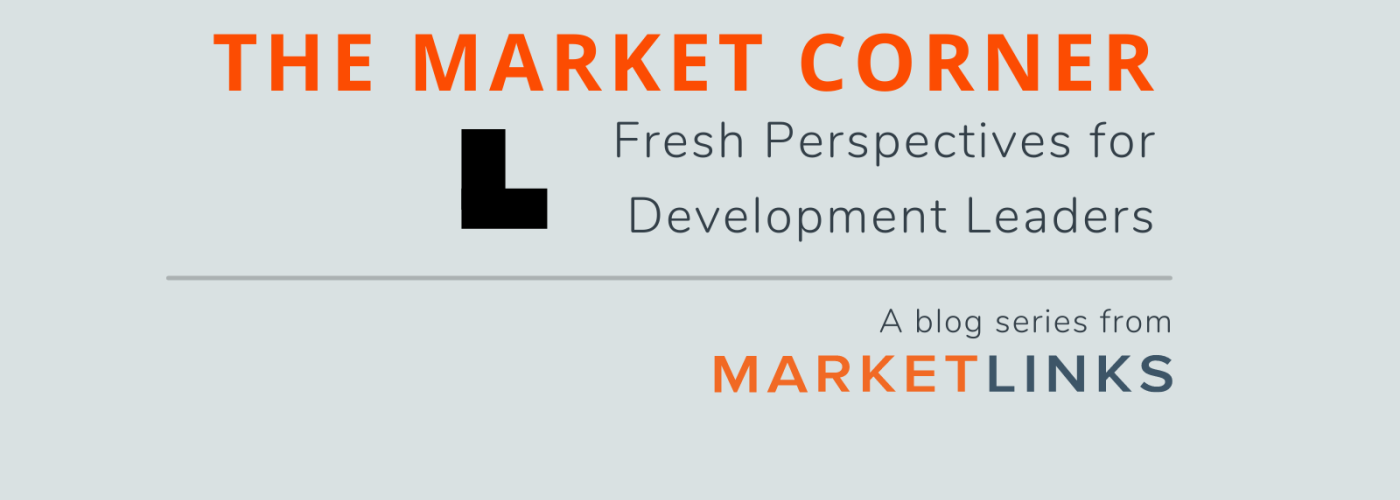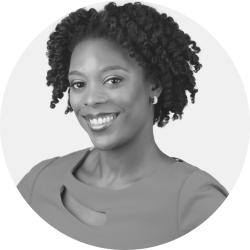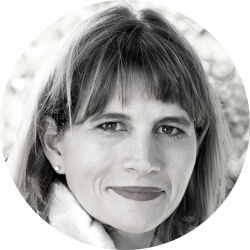The Market Corner: Towards Greater Equity and Inclusion in Supply Chains
Image

This post was written by Holly Lard Krueger.
This month on the Market Corner, I find common ground with two human rights advocates from completely different international development fields by exploring issues of equity and inclusion in supply chains and the application of systems thinking.
In this month's first installment, I speak with USAID’s Zahabu Safi (Clean Gold) Project Chief of Party Nikki Duncan and learn how the reverberations of the racial reckoning in the U.S. have reached as far as the Democratic Republic of Congo (DRC), and what this means for her market systems development (MSD) project.
The Black Lives Matter movement sparked a global conversation.
According to Nikki, “The North American jewelry industry has embraced the Black Lives Matter movement. Based on a study of the North American Jewelry Market conducted by our project last year, we learned that jewelers are now thinking about equity issues in their supply chains in ways that they did not before. They have become more interested and aware of the industry’s impact on artisanal mining communities due to a heightened awareness of social and economic injustice in the U.S. through the increased prominence and globalization of the Black Lives Matter movement.”
Thinking about ways to increase mineral sourcing in a transparent manner that has a more positive impact on sourcing communities has helped many jewelers, especially smaller ones who can more easily communicate the sourcing story to their customers, rethink pricing (e.g., premiums), and explore a more equitable business model. This shift in mindset has buoyed interest in the potential for positive impact of responsible mining, particularly upstream in the jewelry supply chain.
For Nikki, “Responsible business practices go well beyond just compliance, and force companies to consider the impact of their business practices on people and the environment." Nikki goes on to challenge these same companies by asking, “What are you doing to help people that work within your supply chains, or that reside in the communities from where you source, live better?”
Due diligence processes are fraught with equity issues.
While commitments to responsible sourcing are clearly an important step towards creating more positive impact and minimizing or mitigating negative impact in sourcing communities, Nikki finds that the due diligence processes associated with responsible mining are also fraught with equity issues. According to Nikki, “Arguably, you have experts and industry members based in former colonizing countries setting the standard for what is considered 'responsible.' Sourcing communities are subject to the standards, but they are not necessarily involved in setting them. This perpetuates the power imbalances and inequities that often result in disengagement from countries like DRC. This disengagement ultimately limits the legal channels through which artisanal miners can sell their product, therefore reinforcing the incentives to smuggle or support bad actors as the only buying options.”
Nikki acknowledges that there is no easy fix. And the turbulent environment which characterizes eastern DRC, where her MSD project facilitates linkages between community gold mining cooperatives and refiners, exacerbates the challenge.
Nikki credits the adaptive nature of MSD for the nimbleness with which her project has been able to operate. In order to adapt to the dynamic market conditions and overall operating environment in DRC, the project has instituted regular strategic pause and reflection moments to consider and navigate the myriad of challenges they faced, whether it be an Ebola outbreak, an historic change in government, skyrocketing gold prices, a volcano eruption, the COVID-19 pandemic, or even new signals from market, which have significantly changed the necessity for project investment in supply chain risk management activities.
Investing in local capacity and platforms is important for greater inclusion, equity, and sustainability.
It is easier to bring in outside experts and standards. But, Nikki believes that “making our project compass local” is important for greater inclusion, equity, and sustainability in the long term. The Clean Gold project has engaged Congolese civil society organizations or due diligence experts to conduct the site inspections. In some cases, this has involved partnering with organizations like BetterChain to provide technical assistance to improve the quality of local services to align with internationally recognized responsible sourcing due diligence frameworks. Her program has also encouraged the use of the DRC government traceability system, as opposed to international industry developed systems like ITSCI, applied by international tin buyers. This meant they had to partner with the Government of DRC and RCS Global to digitize the national traceability process, which is largely manual at the moment.
Changing power dynamics.
Another way Nikki is investing in local assets is through succession planning with her team. As an expatriate Chief of Party, she recognizes the power dynamics she perpetuates on her own project. From the outset, Nikki was committed to changing that by purposefully exiting the project after two years of implementation and promoting a Congolese Deputy Chief of Party to the Team Leader (CoP) position. Nikki hoped to achieve this change earlier in the project, but circumstances beyond her control delayed progress. She is committed to this transition to Congolese leadership of the project, and looks forward to working with USAID and Global Communities to implement this change. As a leader, Nikki believes it is important to "practice what you preach." Her desire to contribute to the movement to challenge power structures inherent to the design and implementation of international development programs is embraced by her organization, Global Communities, which is on its own path towards becoming an anti-racist organization.
The global call to redress inequities in the system, whether in the global gold supply chain or in international development, requires that we all show up and meet this moment. At the project level, Nikki’s experience shows that the path towards greater inclusion and equity requires a deep commitment to and investment in people, communities, and responsible business practices. At the individual level, it also requires a deep commitment to one’s convictions and an adaptive mindset.
Do you have examples of ways in which your project is working towards redressing systemic inequities? Post via your Marketlinks account or just send them to us at info@marketlinks.org, and we may include them in the next installment of the blog.
About
Image

Nikki Duncan
Nikki Duncan is an international business executive with over 16 years of experience managing complex programs designed to strengthen economies, empower communities and improve lives. Nikki joined Global Communities in 2016 as Director for Strategic Partnerships in Africa. In this role, she was responsible for cultivating and managing partnerships with companies that have both philanthropic and business interests that align with Global Communities’ mission. Currently, she currently serves as the Chief of Party on the USAID Zahabu Safi (Clean Gold) Project implemented by Global Communities in Democratic Republic of the Congo (DRC).Prior to joining Global Communities, Nikki served as the Director for International Corporate Responsibility for Walmart Stores Inc. where she was responsible for developing strategies to support charitable giving, community and employee engagement in the 27 countries where the company has retail operations.
Nikki holds an M.A. in International Economics and Development from Johns Hopkins University, School for Advanced International Studies (SAIS), specializing in International Development and International Economics, as well as a B.S. in Foreign Service from the Georgetown School of Foreign Service with certificate in African Studies.
Image

Holly Lard Krueger
Holly Lard Krueger is a managing partner at the Canopy Lab and a market systems development expert with over 15 years of experience providing technical advice in the field of private sector development/engagement with a specific focus on applying digital technology, gender equality and social inclusion (GESI), market systems, and Value for Money (VfM) principles to project and strategy design for agriculture, humanitarian aid, business enabling environment reform, trade, urban development, and women’s economic empowerment programs.
Holly is a proven strategic leader, having managed large market systems projects with diverse teams. She is also skilled as a strategic advisor, coach, and trainer in the practical application of systems approaches to market development, and she is currently an advisor to USAID’s Bureau for Humanitarian Assistance, a World Bank-funded program in West Africa (TFWA), a DFAT-funded program in Indonesia (PRISMA), and a FCDO-funded program in the Democratic Republic of the Congo (Essor). Holly is based in Morocco and has worked in over 15 countries in Africa, Asia, and the Middle East and has implemented projects and conducted evaluations for leading donors, including the Bill & Melinda Gates Foundation, DFAT, IFC, FCDO, USAID, and the World Bank. She has an M.A. from Johns Hopkins School of Advanced International Studies and a B.A. from Vanderbilt University.


